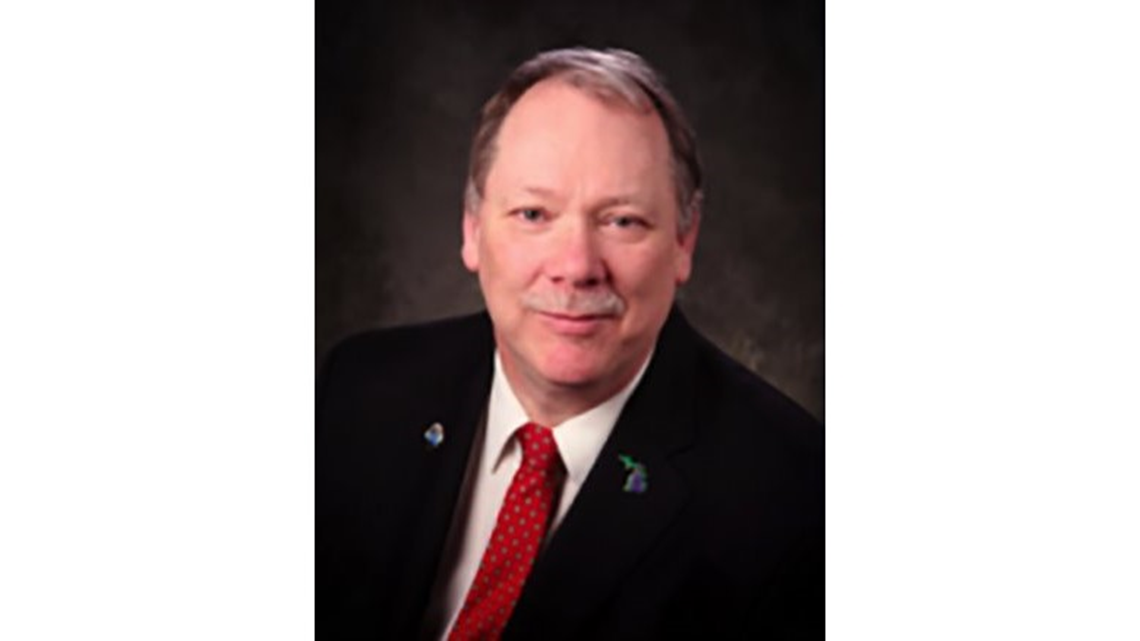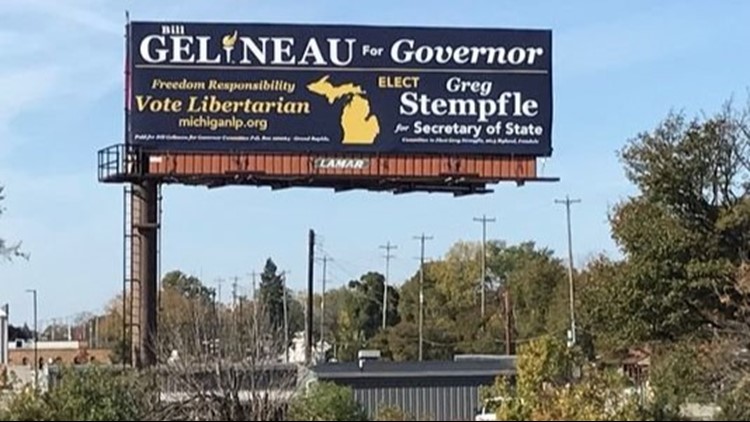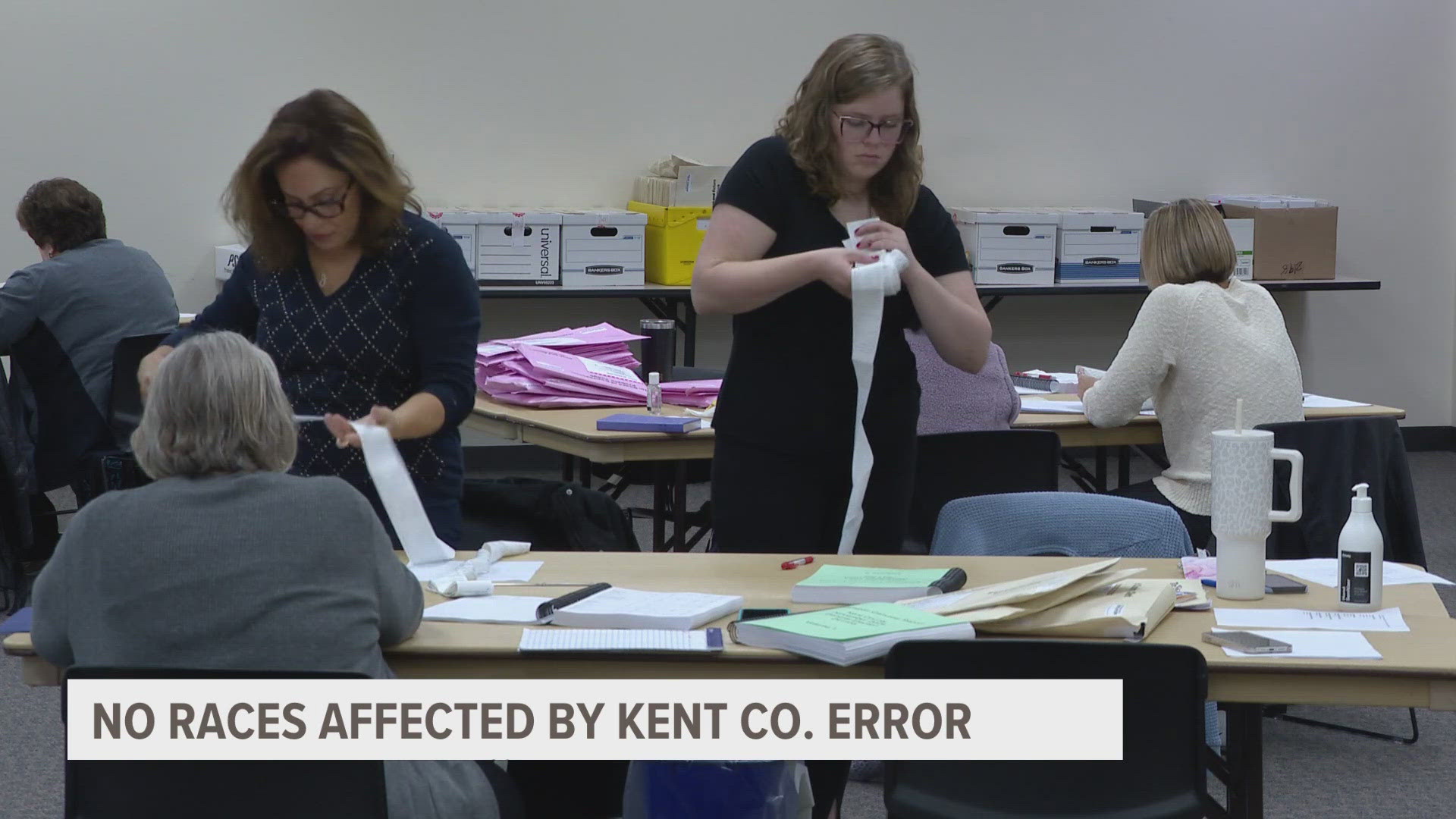LANSING — Michigan’s Libertarian candidate for governor wants to use taxpayer money to pay young single women not to have children.
An independent candidate for attorney general went to court to overturn Michigan’s ballot signature requirements and is seen by analysts as a potential spoiler in the race between Republican Tom Leonard and Democrat Dana Nessel.
And the U.S. Taxpayers Party candidate for secretary of state has a profile so low that he not only has no campaign website, he can’t be found on Facebook or Twitter, either.
Michigan's third-party and independent candidates for statewide office represent a rich political mosaic, and they can't be neatly categorized. Some are earnest and running to win. Others know they will lose but are running to educate voters on pet issues. Some are deeply committed to the principles of their party banner. Others are in reality independents using an eligible party as an easier vehicle to get their names on the ballot than meeting Michigan's onerous signature requirements — about 30,000 valid signatures collected within a 180-day period.
Though polls show both Democrats and Republicans are highly energized for the Nov. 6 midterm elections, "there are still a lot of people who don't like either party," said Matt Grossmann, director of the Institute for Public Policy and Social Research at Michigan State University.
Third-party and independent candidates don't typically affect the outcome of an election — but they always have the potential to do so. And this year — with no straight-ticket voting option for the first time in decades — they're hoping many voters will give them more of a look than they otherwise would.
Though the Republicans and Democrats get vastly more attention, the Libertarian Party joined them this year as a political party qualified to nominate general election candidates through the primary ballot. That elevated status was the result of Libertarian presidential candidate Gary Johnson crossing Michigan's required threshold — which is receiving a presidential vote total equal to at least 5 percent of the total votes cast in the secretary of state race — in the 2016 election.Johnson received just over 172,000 votes in Michigan, which was about 18,000 more than the Libertarians needed to qualify.
Before Johnson made the Libertarians primary-eligible this year, the last third party to have that status in Michigan was the Reform Party in the 1998 election, based on Ross Perot's performance in the 1996 presidential campaign.
Michigan also has four other ballot-eligible parties that can't nominate candidates through primaries, but can do so through party caucus or convention: the Green Party, the U.S. Taxpayers Party, the Natural Law Party and the Working Class Party. Of those, only the Working Class Party does not have a candidate in this year's governor's race, where Republican Bill Schuette and Democrat Gretchen Whitmer are the marquee candidates.
The Libertarian candidate for governor
Bill Gelineau, 59, of Lowell, who won a two-way primary to clinch the Libertarian nomination for governor, now has to win at least 5 percent of the vote total for secretary of state in order to allow his party to remain primary-eligible for the next election.
Gelineau's platform has stirred controversy, both inside and outside his party, which stands for small government and personal liberty.
Young women of 15 whose families have been on public assistance could register for a program that would pay them cash — the amount increasing each year from $2,000 upon registration to $7,000 at age 23 -- to not have children, with "annual physical examination and physician certification of non-pregnancy filed with the next regular Michigan State Tax Return," according to Gelineau's website.
Gelineau, who owns a title insurance company in Grand Rapids, said the program would repurpose money already spent on Medicaid-funded pregnancies and could help reverse a cycle of poverty by encouraging better choices.
However, Bill Hall, a Grand Rapids attorney and state Libertarian chairman, said "there are some other Libertarian candidates or people who are members and involved in the party who look at that and think that's too close to having government getting involved in something that's absolutely not the government's business."


Still, most in the party think it's within Gelineau's rights as a candidate to apply Libertarian principles in his own way — including ways that might attract voters beyond the Libertarian base and help him reach that 5 percent threshold, Hall said.
Though some of Gelineau's ideas may be unorthodox, he has solid Libertarian credentials as a longtime activist and former state party chairman.
The 'independent' U.S. Taxpayers candidate
The ties between third-party candidates and the party they ostensibly represent are not always that strong.
Take Todd Schleiger, a Lake Orion trucking company dispatcher who is running for governor.
Schleiger's press releases call him "Michigan's first true Independent Gubernatorial Candidate."
In reality, Schleiger, 52, is the gubernatorial candidate of the U.S. Taxpayers Party.cq It's a party with an extensive platform, much of which Schleiger does not support, such as removing fluoride and chlorine from drinking water and ending compulsory school attendance.
Todd Schleiger (Photo: Schleiger for governor)
"I've retained my independent status," said Schleiger, and "they (the U.S. Taxpayers Party) don't like the fact."
Schleiger said he believes he would have been able to satisfy the state's requirement of collecting 30,000 valid signatures within 180 days. But then the U.S. Taxpayers Party approached him about becoming its gubernatorial candidate and he decided he could better spend the time campaigning than he would have spent on his signature drive.
"There's a lot of difference between me and the U.S. Taxpayers, and they're not actively out there supporting me," said Schleiger, who wants to put more lottery money toward schools and fix the state's roads while cutting taxes and government spending.
The very existence of the U.S. Taxpayers Party in Michigan illustrates a quirk of Michigan's laws and regulations for third parties — where it's relatively hard for a third party not seeking primary status to get on the ballot, but once that party qualifies, it is relatively easy to stay on the ballot.
The national U.S. Taxpayers Party changed its name in 1999 to the Constitution Party. But not in Michigan.
If the Michigan chapter had followed suit and changed its name to the Michigan Constitution Party, it would have lost its ballot eligibility and been forced to requalify under the new name by collecting close to 32,000 valid signatures. By instead keeping its old name, the party can stay on the ballot for each election by meeting a much lower standard — winning just 1 percent of the vote of the winning secretary of state candidate. It remains affiliated with the national Constitution Party.
The Natural Law Party candidate for governor
Candidates say that valued ballot access is a major reason Michigan's Natural Law Party continues to exist, despite the fact the national party — formed in 1992 based on principles associated with transcendental meditation — has been pretty much defunct since the mid-2000s. Socialist candidates and independents such as Ralph Nader are among those who have adopted the Natural Law Party affiliation to get access to the Michigan ballot.
Keith Butkovich, 34. a retail store manager from Wayne, is the Natural Law Party's candidate for governor.
He makes no bones about what the Natural Law Party stands for today.

Keith Butkovich (Photo: Keith Butkovich)
"A friend of mine calls it the Ballot Access Party, which is essentially what it is," Butkovitch said. "All the candidates run as they wish."
Butkovich, who has little money to spend on his campaign but wants to lower auto insurance rates through measures that include removing the purchase of insurance as a mandatory requirement, also has no delusions about winning the election.
"It's just to get different ideas out there," he said. "Someone may pick them up and run with them."
Also running for governor is Green Party candidate Jennifer Kurland.
Kurland, 37, of Redford, said "it's a great time to be Green" because "there are a lot of people who are very unhappy with the red and blue options."
She said she's talking to voters about improving public education and the economy, heath care, fighting environmental pollution, and the Flint water crisis.

Jennifer Kurland (Photo: Kurland for governor)
Host of a radio show and president of the Redford Union School Board, Kurland has worked in banking and as a field manager for the Michigan environmental group Clean Water Action. She said her diverse background and understanding of environmental and other issues makes her "the best candidate in this race."
Candidates for attorney general
Moving to the attorney general's race, there are three candidates on the ballot in addition to Leonard, the Republican, and Nessel, the Democrat.
Former federal prosecutor Chris Graveline took Secretary of State Ruth Johnson to court over the state's ballot signature requirements for independent candidates.
Graveline, who collected fewer than half of the roughly 30,000 required signatures, won access to the ballot in August when U.S. District Judge Victoria Roberts — in a ruling later upheld by the U.S. 6th Circuit Court of Appeals — issued a preliminary injunction against the requirement, which Graveline argued is unconstitutional.
Christopher Graveline (Photo: Social Motto)
Roberts noted that no independent candidate had qualified for the statewide ballot since the current rules were adopted in 1988. Though her preliminary ruling puts Graveline on the ballot for this year, the court fight will continue after the election to determine whether the signature requirements will be permanently softened.
Graveline, 45, of Berkley says Michigan's attorney general should be nonpartisan but is currently operating similarly to an outside law office for the Republicans or the Democrats, depending on which party has the AG in office. Current Attorney General Bill Schuette shouldn't have been suing the Obama administration over the Affordable Care Act and Democratic attorney general nominee Dana Nessel should not be making plans and promises to sue the Trump administration, he said.
The Libertarian candidate for attorney general is Lisa Lane Gioia.
Gioia, an English-Japanese translator from West Bloomfield, is stressing that she's only spending about $500 on her campaign. She said the major-party candidates will be beholden to corporate interests that are donating millions to their campaigns.

Lisa Lane Gioia (Photo: Masserman Photography)
An AG's defense of citizens' rights "can be only be achieved by one who is not beholden to government or special interests, and who has business experience to eliminate inefficiency and incompetence rampant in government," Gioia said on her campaign website.
Gioia, 50, said she wants to tackle high auto insurance rates by replacing Michigan's no-fault system with one under which drivers can sue for damages. She also wants to put a stop to civil asset forfeiture rules under which police and prosecutors can seize cash, cars and other assets from citizens without ever charging them with a crime.
Gerald Van Sickle, 63, of Wellston, the U.S. Taxpayers Party candidate for attorney general, could not be reached for comment.
He earlier told the Free Press for its voter guide that his top priorities were making sure laws passed by the Legislature comply with the state constitution, making sure the federal government does not infringe on state rights, and helping Michigan citizens regain control of state agencies.
Third-party candidates for secretary of state
The race for secretary of state features two candidates in addition to Republican Mary Treder Lang and Democrat Jocelyn Benson.
Libertarian Gregory Scott Stempfle, 41, of Ferndale is a medical technologist who works in a hospital lab.
He said he's running mainly to educate voters about the need for election reform, and especially to advocate for ranked-choice voting, similar to what has been used in Maine, in which voters list their choices in order of preference and second choices are considered if no candidate receives a majority.

Gregory Scott Stempfle (Photo: Stempfle for secretary of state)
"This is a long game to reform Michigan's elections," he said.
Robert Gale of Sterling Heights, running for the U.S. Taxpayers Party, could not be reached for comment.
He also did not respond to the questionnaire for the Free Press voter guide and could not be found on Facebook or Twitter.
Michigan November Election Voters' Guide
Michigan's general election is on Tuesday, Nov. 6. Use the Free Press' voter guide to learn about the candidates in races up and down the ballot in Wayne, Oakland and Macomb counties
Type in your address to learn about races that will be on your ballot.
Can't see the address field? Click here.
Contact Paul Egan: 517-372-8660 or pegan@freepress.com. Follow him on Twitter @paulegan4.
►Make it easy to keep up to date with more stories like this. Download the 13 ON YOUR SIDE app now.
Have a news tip? Email news@wzzm13.com, visit our Facebook page or Twitter.



